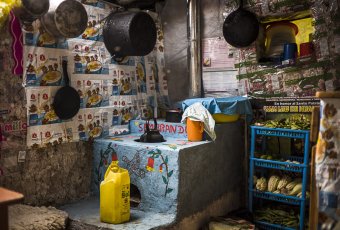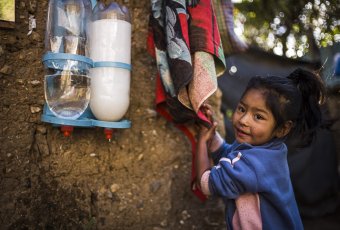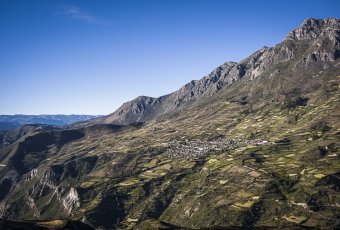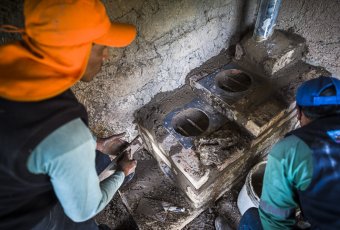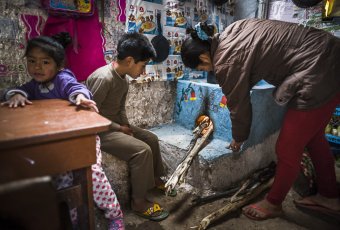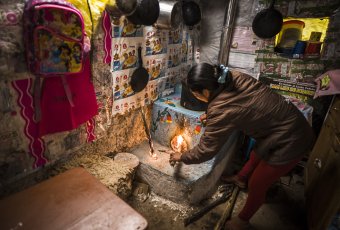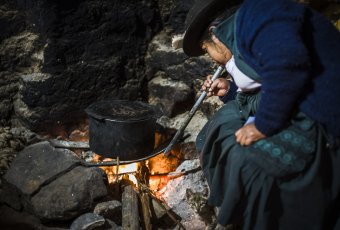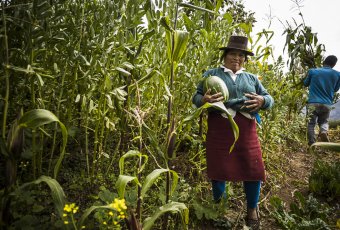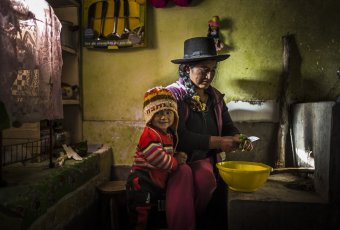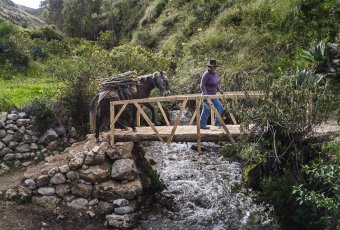The context
Huancavelica and Ayacucho regions, where the project is located, are mostly inhabited by very poor Indigenous population. In the Andes, temperature tends to be near zero during the night. Women are used to get up at 4:00 a.m to cook breakfast and warm the house with the cooking fire – which is therefore always located inside the house. Traditional cookstoves in Peru are made of three stones with fire in the center. These cookstoves have disastrous effects on health. People are exposed to toxic smokes affecting their lungs and eyes. And since these low-efficiency cookstoves use a lot of wood, a cash or time-expensive resource, people make only one fire for food. Water is not boiled before drinking, which leads to health issues, in particular for children. Also, deforestation is quickly gaining ground as tress are cut down for firewood.
The project
This Livelihoods project, started in 2016, is providing upfront financing to ITYF, a local NGO, to extend its efficient cookstoves project. Alongside the efficient cookstoves, ITYF is also providing communities with health and hygiene kits and trainings. 30 000 households, among the poorest of Ayacucho and Huancavelica, are concerned by this program.
Since 2006, ITYF has been working with Andean communities to promote efficient cookstoves while sensitizing them on healthier daily habits – cooking habits, but also hygiene habits (such as washing hands regularly), or consumption habits (such as drinking safe water).
Anyone in the selected districts can register to receive a cookstove. To qualify, a family needs to:
- Dedicate a few hours and the necessary clay bricks (purchased or self-made) to build the base of the Sembrado stove, at a standard size;
- Commit to use the stove and abandon 3-stone stoves or other less-efficient alternatives.
Once all the families are ready with the base, a “construction master” trained by ITYF is called to build the stoves on the bases, using clay bricks and the metal parts provided by ITYF.
The project promotes an efficient cooperation between public services (providing storage for spare stove parts, workforce, information), its own staff (providing training, information, solutions to problems) and leaders inside the communities (teachers for example). The latter become representatives of the project, collecting information and providing first-line advice on how to use and maintain stoves, and how to support the hygiene and health of the whole family.
The social and environmental impact
ITYF models of cookstoves have been conceived by engineers and improved over the years to best fit local community’s needs:
- Minimum smoke emissions;
- Use of all heat to boil water at the same time as cooking meals;
- Reduced wood consumption to save time and/or money.
The project is therefore:
- Improving the hygiene of children in 30,000 families, reducing their exposure to diseases such as early-age diarrhea with impacts on growth and brain development
- Completely removing toxic smoke from 30,000 households, benefitting the whole family, in particular women who spend more time by the fire
- Providing extra support to the most vulnerable populations: treatment to de-worm the youngest kids and parturition kits for a better mother and baby health;
- Cutting wood consumption by 60%, avoiding the emission of more than 1 million tons of CO2 in the atmosphere over 14 years.
Learn more about the benefits of the project for rural families



